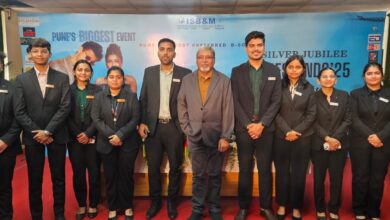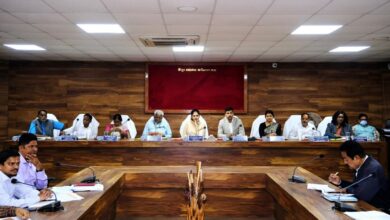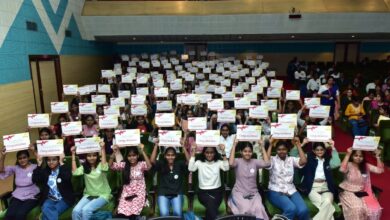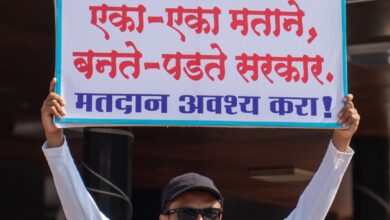“India to be a high-income nation by 2050”: Member, NITI Aayog
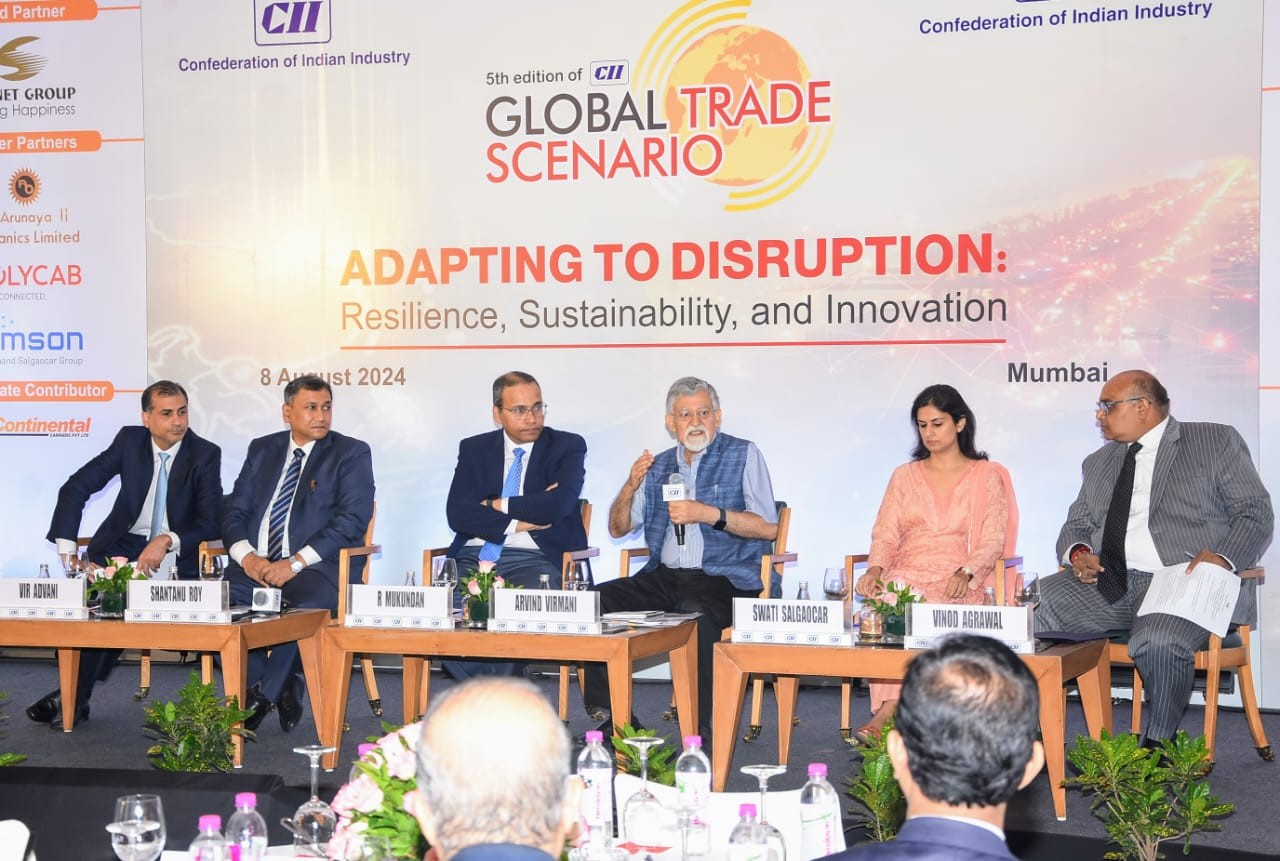
“India to be a high-income nation by 2050”: Member, NITI Aayog
“States must address gaps in education and skilling”: Member, NITI Aayog Dr Arvind Virmani
Fifth CII Global Trade Scenario Conference 2024 in Mumbai Focuses on Adapting to Disruption: Resilience, Sustainability, and Innovation
Mumbai, 8th August 2024
The Confederation of Indian Industry (CII) hosted the Fifth Global Trade Scenario Conference in Mumbai today, 8th August 2024. The fifth edition was themed ‘Adapting to Disruption: Resilience, Sustainability, and Innovation,’ which in the face of unprecedented global trade challenges, aimed to foster dialogue among key stakeholders.

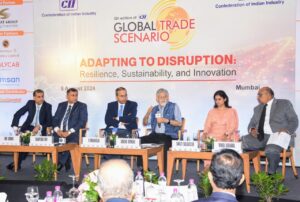
“Demographic dividend, unbundling of services, fragmentation, and demonopolisation of exports will drive trade and help India’s transition to upper middle income country by 2030,” Member, NITI Aayog, Dr. Arvind Virmani mentioned during his keynote address. He spoke about India’s growth prospects amid global trade disruptions. Dr. Virmani highlighted a notable shift in the global growth landscape. “Getting anchor investors into every state will drive FDI,” he added.
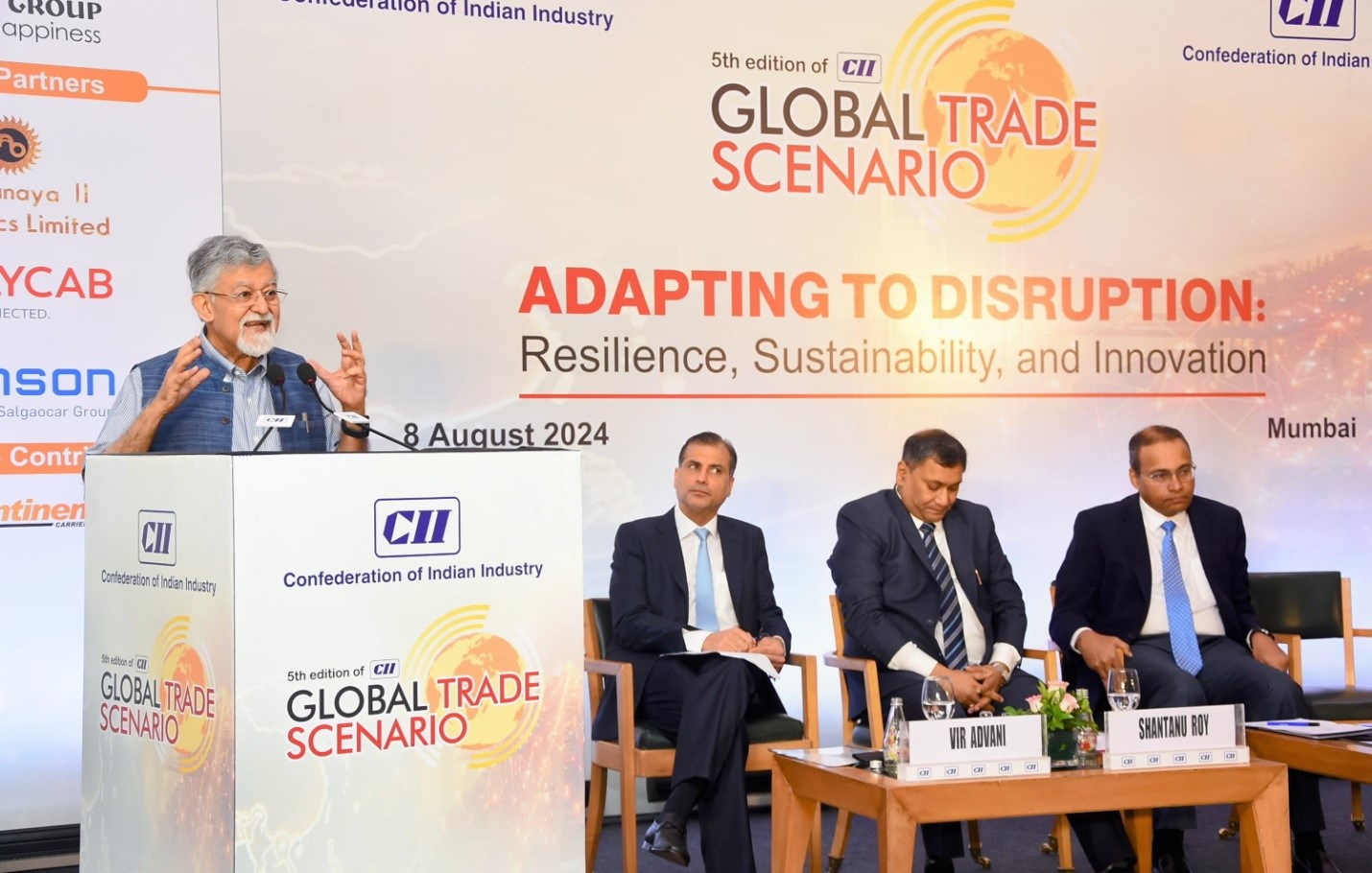
Dr. Virmani shared his views on several macro-economic indicators concerning India. He said that considering his projection of a 5.4% average growth, India will become an upper middle-income nation by early 2030s and a high-income nation by 2050. He also stressed on the importance for India to upgrade its urban infrastructure including drinking water, sanitisation and drainage to match the standards commensurate with these income levels going forward.
While talking about employment, Dr Virmani stated that India’s worker population ratio is rising and that the number of employees is growing faster than the growth rate in population. According to Dr Virmani, among the three categories of workers viz. casual workers, salaried workers and self-employed, the first category saw the fastest rise in wages, whereas the second category is not seeing much increase. He said that there is an urgent need to address gaps in education and skilling and advised states to focus on the same.
“Job and skilling are two sides of the same coin,” Dr. Virmani underscored the critical link between job creation and skill acquisition. He asserted that job creation and skilling are intrinsically connected, with initiatives like NIPUN – National Initiative for Proficiency in Reading with Understanding and Numeracy, and DIKSHA – Digital Infrastructure for Knowledge Sharing schemes the government focuses greatly on skilling which is vital for the economy. However, he stressed that while the government can seed these programs, private sector participation and NGO involvement are essential to bridging the skills gap and ensuring successful outcomes.


